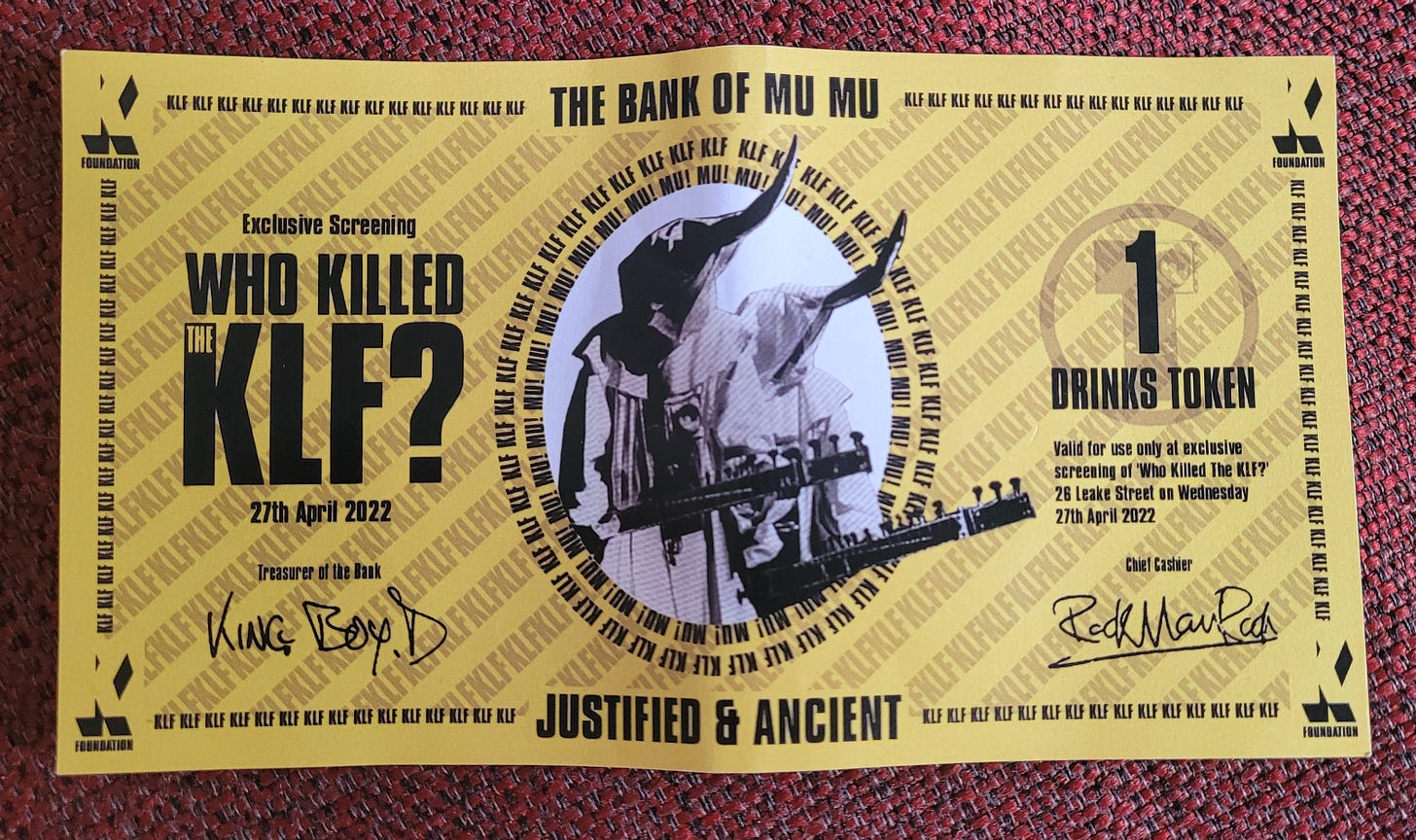Elon Musk, as the world now knows, is trying to buy Twitter. When he announced his shopping, he said his plans included ‘defeating the spam bots, and authenticating all humans.’ I did enjoy his use of the phrase ‘authenticating all humans.’ Musk always leans in to his image of a living Doctor Who villain.
Instinctively, though, Musk buying Twitter feels odd. Running a social media giant is a full time job. It is not a fun side hustle for someone who also runs a space rocket company, the world’s most valuable car manufacturer, a tunnelling business, a brain implant company, an AI research lab, and who is also raising small children. He paid over the odds to get his prize - a company few think has the potential to become significantly more profitable. Perhaps the $44billion price was trivial to him in a way that the rest of us can’t comprehend, but it still raises the question - what does buying Twitter give Musk that he didn’t have before?
I don’t mean to hate on Musk here. Before Tesla, the car industry saw electric cars as a joke. They were never going to invest in developing them. After Tesla, petrol and diesel cars are going to be phased out. Given that decarbonising transport is vital if we are to avoid runaway climate change, it’s hard to think of anyone who has achieved anything so practical, difficult and important for the future of the world. Musk has pulled off something truly historically great, and that remains a fact regardless of his billionaire politics, how grim he is to work for, or much he winds people up online.
But that said, he sure has been coming out with some ropey statements in recent years. His claims that Neuralink will allow ‘superhuman cognition’ and could ‘solve’ autism and schizophrenia may sound good to investors in Silicon Valley, but to neuroscientists those claims are nonsense. In a similar way, many who have worked on the problem of social media moderation have listened to his plans for Twitter and come to the conclusion that he has no idea what he is talking about.
Then there is the issue of Mars. Musk’s great goal in life is to make humanity interplanetary. He envisions a million people living in cities on Mars, perhaps as early as 2060. He has made extraordinary advances in solving the engineering and logistical problems involved in getting there. Unfortunately, the biological, social, psychological, medical, environmental, ecological and spiritual problems remain. I looked at this question in my book The Future Starts Here and came to the conclusion that large, permanent human colonies on Mars were the stuff of fantasy. But who knows, perhaps one day he will prove me wrong.
Mars is important here because, more than anything else, this is the dream that drives him. Musk came to the conclusion at an early age that the future of life on Earth was at risk and that only by becoming interplanetary could we be safe. The settling of Mars became his ultimate goal, and this explains a lot about his other endeavours. SpaceX commercially launches satellites, for example, because this gives him a financial path towards developing the tech he needs to get to Mars. Likewise, his tunnelling business - the brilliantly named Boring Company - might at first seem an odd business for him. Or at least it does, until you realise that living on Mars would ultimately mean living underground. That would require the development of smaller, more powerful, transportable tunnelling equipment.
At first glance, Twitter may not seem part of this long term Martian plan. Billionaires own internet companies predominantly for the data - Amazon’s data allows Jeff Bezos to sell to you, for example, while Facebook’s allows Mark Zuckerberg to sell you to others. It’s not immediately clear why Musk would want all that Twitter social data, or how he could profit from it. Until, that is, you think about those cities on Mars.
A million Mars-dwellers is a society, and a society means politics. This raises the question of what political system should be established on Mars? The issue of Martian politics is explored in Kim Stanley Robinson’s books Red Mars, Green Mars and Blue Mars, and it turns out to be every bit as messy, complex and divided as Earth politics. Silicon Valley would instinctively assume a libertarian capitalist society, but the level of danger involved in living on Mars would suggest a more rigid, authoritarian regime. It does not help that terrorism proves to be much easier and more effective when people live so close to death.
To settle Mars, then, also involves tackling the problem of how people can get along with each other. Twitter is a real-world worst-case test experiment in this area, so its data will be very useful on that level - especially in light of Musk’s co-founding of the research company OpenAI. Owning Twitter would allow him to play with the parameters of this experiment, and see what happens.
For example - as social media moderators know well, a certain percentage of people are shits. It might seem obvious that removing the shits is the way forward, but this may not necessarily turn out to be for the best. Ecologists studying rewilding, for example, now know how an ecosystem suffers in the absence of an alpha predator. Whether similar feedback systems apply in human networks is hard to know - but if you had something like Twitter to run experiments in, you might find out.
If Musk just wanted the social data Twitter generates, he could simply buy that. But if wanted to make experimental changes to the algorithm - for example making the voices of certain personality types more or less prominent, and then seeing what happens - to do that, he would need to own Twitter.
This is all idle speculation on my part, of course. Musk’s motives for buying Twitter may be very different. It’s possible he has also come to conclusion that settling Mars is not possible and is thrashing round for something else to focus on - something that would distract a man who sees himself as an alpha saviour, and who also happens to be the richest man in the world.
But the possibility has made me curious. I had been thinking of ditching Twitter. I realised that my heart was not in it when I got a Wordle in one and felt no urge to announce this fact. But the notion that Twitter might be about to become a research lab for future Martian civilisation is quite something. Perhaps I’ll stick around on Twitter a bit longer, and see what happens.
WILLIAM BLAKE VS THE WORLD NEWS
I’m excited to report that the American and Canadian edition of William Blake Vs The World is out next week - it will be in shops on May 3rd. It’s a very handsome edition, courtesy of Pegasus Books. It is available from Amazon and all your preferred book shops.
I’m especially thrilled that my reading of the audiobook will also become available over there on 3rd May as well. If this does okay, it could lead to more of my audiobooks becoming available in the USA and Canada - perhaps even my KLF one, who knows? Let’s see!
And two days later, on 5th May, sees the official release of the paperback edition here in the UK. I have not seen a copy yet, but I hear it is already leaking out early - the Blakean spirit is not easily contained. My daughter sent me this photo of it in Manchester Waterstones on Friday.
To help celebrate, I’d like to share this frankly magnificent version of The Tyger by Robin Johnson (click through for the full delight.)

KLF STUFF
I had a great time at the premiere for Chris Atkins’s documentary Who Killed The KLF? on Wednesday. Brilliant to see the finished version of the film at last, and see how well it played before an audience. Also quite a buzz to catch up with the regenerated Ford Timelord again.
I won’t lie, it’s definitely a weird experience seeing your own face on a cinema screen. Suddenly there’s two versions of you - the normal you and a giant you - and the giant you is the one that everyone is paying attention to. No good can come from that scenario. I’m starting to understand why actors are the way they are.
There was great attention to detail on the beer tokens at the screening, you have to admire that.
The film will be screened in selected Picturehouse cinemas on May 18th, and it’s already available to rent and stream from Amazon Prime Video and iTunes and the like.
As luck would have it, I sat next to Oliver Duke-Williams who was telling me about the Bank Job film and project - in which £1million worth of debt was bought up (for £20,000), placed in a transit van, and then blown up. All this had passed me by and I found it fascinating - Oliver writes about it here if you want to know more.
AND FINALLY
If you’ve read my book Stranger Than We Can Imagine, you’ll remember that great Dada original, Baroness Elsa von Freytag-Loringhoven. I like to think you’ll probably never be able to forget her. So it’s very exciting that there is an exhibition of some of her original work, plus a group exhibition of work inspired by her, opening at Mimosa House in London on May 26th. More details are here - it sounds like an absolute must-see.
And finally - Jennifer Lucy Allan’s mighty exploration of sound and sea The Foghorn’s Lament has finally made it out into paperback. It has a quote from me on the front giving it some love, and those who have yet to read it are heartily advised to do so soon.


Until next time!
jhx









